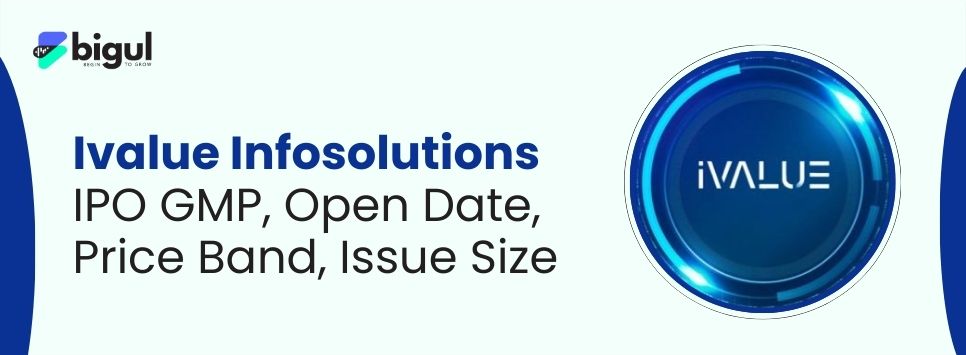In the rapidly evolving area of personal finance, mutual funds have become an extremely popular and readily available investment option for millions of people. The signposts of diversification, manager expertise, and wealth creation are beckoning investors from every walk of life. Unfortunately, with their rampant growth, comes a slew of ignorance, half-truths, and outright misinformation. The myths we address here are elementary, often combined with "half facts" or anecdotal advice that ultimately discourage good future investors and lead to poor money decisions. This article will help investors understand investing in mutual funds by clearing most of the important doubts. We are going to methodically challenge 23 prevalent mutual fund myths, substituting common misconceptions with lucid, fact-based truths. At the conclusion of this odyssey, our desire is to equip you with a keener sense of awareness, allowing you to make mutual fund investments confidently, clearly, and with a system that actually serves your financial goals. It's time to uncover the layers of misconception and unlock the true potential of the mutual fund.
The Myths Debunked
1. It Takes a Lot of Capital to Begin Mutual Fund Investing
It is wrongly believed that for investing in a mutual fund a large amount of money is required. In reality, investing in mutual funds, especially through SIPs (Systematic Investment Plans), can be started with just Rs.500/- only. There is no high minimum limit, so even small investors can begin their investment journey easily.
2. Expert Financial Knowledge is Required for Mutual Fund Investing
An investor does not need to be an expert and even beginners can invest in mutual funds. The money is managed by fund companies, which have experts.
3. Mutual Fund Investments Guarantee Returns
Depending on the risk, Mutual Funds can yield high returns. But there are no guarantees by Mutual Funds regarding returns. Mutual fund returns are linked to the market and depend on market changes and are not fixed. So, it is illogical to expect them to give guarantees.
4. Mutual Fund Investments Need A DEMAT Account
A DEMAT account is not needed as Mutual Fund units can be held either in physical form or in dematerialized (DEMAT) form. When you make an investment in Mutual Funds for the first time, you have to fill in a Know Your Client (KYC) form and attach it to your application. You also have to provide some other relevant supporting documents. Your application will be approved after your KYC Documents are verified.
5. Mutual Funds Invest Only in Equity Markets
Contrary to popular belief, Mutual Funds do not invest solely in equity and equity-related securities. There are also funds that invest exclusively in debt. Mutual Funds are broadly categorized into different groups, such as equity, debt, and other money market instruments. To minimize risk, some funds, like balanced funds, even invest in a combination of both equity and debt.
6. Age is a Barrier to Beginning Mutual Fund Investments
It is actually a great time to start investing If you are young, You will also have time on hand, which means that if the market declines, you will have sufficient time for recovery of your investment if you remain invested.
7. SIPs (Systematic Investment Plans) are Inflexible Once Started
Most investors incorrectly believe that once a SIP is initiated, it can't be changed or canceled, and with that thought comes hesitation to begin. The truth is SIPs are incredibly flexible. Investors can change the amount they choose to invest, pause their contributions for a time, or cancel the SIP at any time, free of cost. In addition, the date of the SIP can be changed, and typically investors can switch funds if they feel it's necessary. The flexibility of SIPs allows investors to manage their payments to align with changing financial situations and mandates, giving precise control in a flexible method of investing.
8. Mutual Funds and SIPs are same
This fallacy makes a lot of new investors think that "SIP" and "Mutual Fund" are synonymous or used to describe the very same thing. It seems to suggest that if someone says they are investing in an "SIP," they are just referring to the overall investment product and not realizing that SIP is just a way to regularly invest money in a mutual fund scheme.This myth leads to misunderstanding the nature of how mutual funds actually operate and the different ways one can invest in mutual funds (e.g., lump sum).
9. For Earning Profit From Mutual Funds, Timing The Market Is Must
There is a pervasive myth that to get good returns, investors need to buy and sell mutual funds at the right moment. In reality, it is not only challenging but also dangerous to try to time the market day in and day out. Mutual funds, particularly when invested via SIPs, are planned so that investors can take advantage of market volatility in the long run with rupee cost averaging. Long-term investing, patience, and discipline are much better approaches than attempting to follow the short-term direction of the market..
10. All Mutual Funds Are High Risk
This widespread myth lumps together all types of mutual funds into a high-risk category that only connects them to the volatility of the stock market. It indicates that investing into a mutual fund is automatically taking a high risk of capital loss and can potentially stop risk-averse individuals from considering it. This myth ignores the plethora of mutual fund categories that all exhibit varying levels of risk, many of which have low-risk profiles and target stability instead of aggressive growth.
11. Mutual Funds Are Best Used for Long-Term Investments
Even though investment in mutual funds is advised for the long term, an investor can also do so for the short term.They also come in short-term and medium-term variations. Mutual funds come in types like debt, equity, or mixed, and they have varying maturities..
12. Historical Performance Predicts Future Mutual Fund Returns
It is a common belief that if a mutual fund did very well in the past, it will definitely do well in the future also. This belief is also held by many investors who subsequently select funds based on past performance only, on the assumption past performance ensures future gains, without considering any changes in markets, fund managers, or economic cycles. However, Future returns cannot be indicated or guaranteed by the past performance
13. Mutual Funds (Including Debt Funds) are Completely Risk Free
Such a misunderstanding implies that investment in mutual funds, specifically those that fall under the debt fund category, is completely risk-free. Such investment is equated to traditional fixed-income products like bank fixed deposits, with guaranteed capital preservation and returns, irrespective of market movements or credit events. This assumption neglects the risks involved with debt instruments like interest rate fluctuations and default on credit.
14. More Money Necessarily Results in Greater Diversification
Most investors think that owning a large amount of diverse mutual funds in their portfolio automatically equates to better diversification and risk minimization. The myth suggests that simply having more funds in a portfolio ensures broader market exposure and greater risk protection. This often leads to investors holding too many funds, even with redundant holdings, under the assumption that 'more is always better' for diversification.
15. Lower Net Asset Value (NAV) Means a Less Expensive Fund / New Fund Offers (NFOs) are Necessarily Better
This actually is a myth made of two commonly held wrong beliefs.Firstly, it implies that a mutual fund with a lower Net Asset Value (NAV) per unit is "less expensive" and therefore a better bargain than a fund with a higher NAV, much like one would consider a lower-valued stock. Second, it tends to make investors think that New Fund Offers (NFOs) are better in and of themselves since they can be purchased at a face value (e.g., ₹10 per unit), having a "fresh start" or superior value proposition than older funds.
16. A Higher NAV Means that a Fund has Topped Out and Should be Shunned
A higher NAV doesn't mean anything other than the fund has done well in the past, not that it's now more expensive or at its high point. NAV is a unit price of the fund, and whether it's high or low doesn't matter to future performance. The important thing is how the fund's portfolio is handled, the assets within it, and how they align with your goals. Missing a good fund just because it has a high NAV might result in overlooking long-term consistent returns.
17. All Mutual Funds Have Lock-in Periods
Some funds like ELSS (Equity Linked Savings Scheme) have a 3-year lock-in period, most mutual funds allow you to invest and withdraw freely.. Open-ended mutual funds permit entry and exit freely based on requirement. Mutual funds are good for both short-term and long-term goals because of this flexibility. The key is understanding the nature of the fund and its conditions — not every fund has withdrawal restrictions.
18. Switching Between Funds Has No Tax Consequences
Some Investors wrongly assume that switching from one mutual fund to another does not trigger any tax. In fact, each switch is considered a sale and tax implications may be there. It gives the impression that taxes are incurred only when money is withdrawn entirely from the investment system, and not seeing each transfer as a redemption event.
19. Direct Plans are Always Better Than Regular Plans
Direct plans of a mutual fund have a lower expense ratio than regular plans since they exclude the distributor's commission. Although this makes them cheaper, it doesn't necessarily mean they are suitable for all investors. Regular plans have the additional advantage of advisory services that can be useful to those investors who require assistance in fund choice, asset allocation, and portfolio checkup. Direct plans can be a good option for investors who like to invest on their own. But for those who prefer guidance, regular plans might result in better long-term outcomes despite the slightly higher cost.
20. Mutual Fund Portfolios Do Not Require Review or Monitoring
Although mutual fund professionals manage their specific funds, they are not reviewing your total financial portfolio. Thus, an advisor is very useful or it is important to do this regularly on your own. You might want to invest more money, your income may improve, you may not like the risk level when investing, or your financial goals may have shifted downward. Your objectives for investing money will still be valid but the markets and the economy are constantly changing. Some regular review of your investments will keep you on the right path and help you avoid unnecessary risks or losses.
21. Documentation Required to Invest in Mutual Funds is very Extensive / KYC must be Done for Each Mutual Fund Investment
KYC is needed to invest in mutual funds, but an investor has to do it once, not every time. Once your KYC has gone through a SEBI registered intermediary (like a broker, Depository Participant, or Mutual Fund agency), you're ready to go! Generally, you will have to provide proof of identity, address proof, and a current passport size photo. You can do this entirely online, and once the KYC is instituted, the process has become completely paperless, and so much easier!
22. Weekly SIPs Performed Better than Monthly SIPs
Weekly SIPs involve regular small investments which can assist in rupee cost averaging, but they will not necessarily outperform monthly SIPs. Monthly SIPs are easy to handle, cost less and fit well with how people usually earn money.The performance difference will generally be marginal and subject to market conditions.
23. Financial Planning is a One-Time Activity
Everybody thinks that financial planning is something one can do once and then invest to benefit forever. Indeed, an investor needs to review and adjust his plan regularly to stay aligned with his changing goals. If your objectives change over time, your investment goals will be modified too. While achieving higher returns and financial objectives through systematic and continuous investing via SIP's is very essential, it is not sufficient alone. It is important to invest regularly, however, portfolio review is equally essential. Changing economic, environmental, and political factors can change your financial position and it is prudent to periodically review your investments.
Conclusion
Education and debunking myths about mutual funds is critical to every investor before investing. Shattering some of these myths like high minimum investment levels, assured returns, and the fallacy that mutual funds are meant for professional investors might have deterred some people from making the most of what mutual funds can truly offer as an investment option. The reality is that there exist mutual fund products for all investors whether young or old, sophisticated or not, goals or risk tolerance. With all the positives like diversification, transparency, and active professional management of every fund, one of the best means to invest in the long term is mutual funds.. With the knowledge of what really constitutes these 23 myths, investors can avoid unnecessary learned behaviours and endeavour to make informed investment decisions that truly reflect their investment time horizons and financial objectives and risk appetite.







.jpg)





.jpg)
